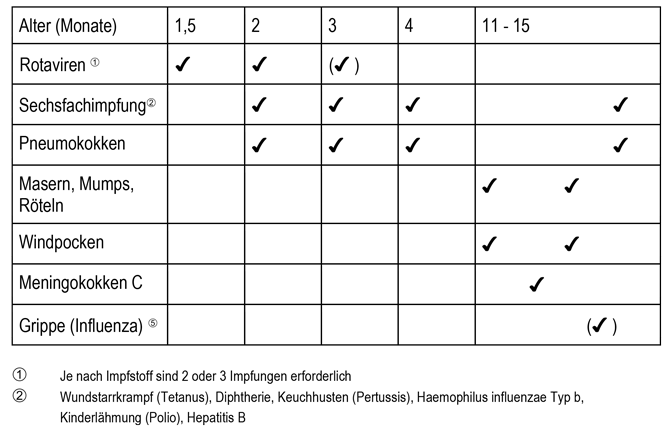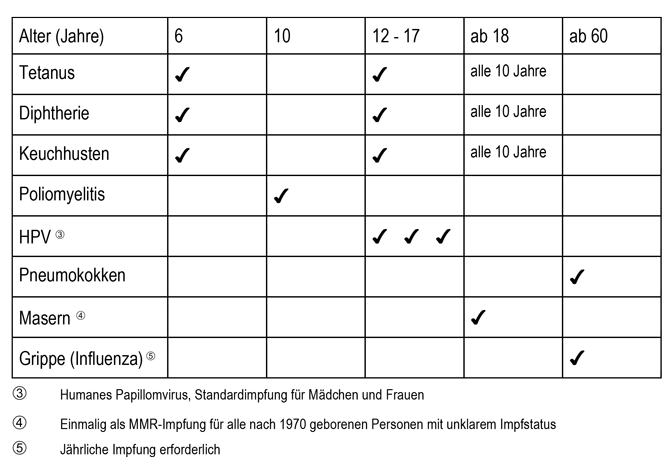Can I rely on the agreed date?
Yes. We treat our patients by appointment only. Because all our patients adhere to this regulation, the doctors are actually available to treat your child at the agreed time. In an emergency, however, you will always be given an appointment by telephone at short notice on the same day, as one of the three doctors in the practice will certainly be available. If you come without an appointment, you will have to spend time in the waiting room. With an appointment, you can spend this time at home and no longer have to wait in the practice!
My child is not privately insured. Can I still have it treated in the group practice?
We invoice our services in accordance with the rules of the German Medical Fee Schedule (GOÄ, 1982). Privately insured persons will subsequently be reimbursed this invoice amount by their insurance company. Because we do not have a license to practice medicine, we cannot bill our services to the statutory health insurance companies. If you wish to have your child treated by us, you will have to pay the costs yourself.
My child is ill - at the weekend of all days.
Our website tells you which of the three doctors is on call and how you can reach them by phone. Most problems can be solved over the phone, otherwise it is possible to have your child examined during a home visit.
Which vaccination does my child need?
We vaccinate according to the current recommendations of the Standing Committee on Vaccination at the Robert Koch Institute (STIKO). In addition, we carry out indication and travel vaccinations, also for parents. The current vaccination calendar for the standard vaccinations looks like this:
Vaccination calendar for infants and young children
Vaccination calendar for children, adolescents and adults
Do I have to get vaccines for my child from the pharmacy beforehand?
No. We have most vaccines in stock, so you don’t have to worry about anything.
My child is a premature baby. Should I therefore have it vaccinated later?
No. During the last weeks of pregnancy, maternal antibodies are transferred to the child via the umbilical cord. Premature babies have inadequate nest protection because this transfer of antibodies is terminated prematurely. They are therefore all the more dependent on building up their own protection through vaccinations as early as possible.
When is my child's next check-up due?
In NRW, preventive medical check-ups, known as U’s, are mandatory. There is an obligation to report medical check-ups that have been carried out, and the youth welfare office will issue reminders for missed check-ups.
The following U’s are planned for infants:
And for children and young people:
These are the U’s provided by statutory health insurance funds. From the beginning to the end of puberty, we also carry out annual check-ups because “a lot happens very quickly” during this developmental phase. The costs are generally covered by private health insurance companies.
My child has a fever. Do you need an antibiotic?
Most infections are caused by viruses, against which antibiotics are ineffective. We can examine the blood count and CRP (C-reactive protein) with a small finger prick or use various rapid tests to determine whether it is a viral or bacterial infection. The results are available after 5 minutes. We only prescribe an antibiotic if a bacterial infection has been detected.
My child is not yet dry at night. What can I do?
Most children become dry at night between the ages of 4 and 5. If older children still wet themselves, this can have very different causes. The causes are often maturation delays or disorders of bladder function, less frequently malformations of the urinary tract or other causes. First of all, a diagnosis must be made. This requires a number of examinations, such as uroflowmetry or ultrasound, all of which can be carried out in our practice. The therapy required for the respective diagnosis can then be initiated.
Can vaccinations trigger allergies?
No. Timely vaccinations even reduce the risk of allergies. They stimulate the child’s immune system and prevent so-called “embarrassment antibodies” from being formed against substances such as pollen, animal hair or dust mites.
Aren't infant vaccinations superfluous because all children have nest protection?
No. Every mother passes on the antibodies present in her blood to her child via the placenta. These borrowed antibodies form the so-called nest protection, which, however, only remains in place temporarily. There is no nest protection against diseases such as whooping cough, diphtheria or tetanus. Breastfeeding also only provides limited protection, and only against gastrointestinal infections that the mother herself has had. All other antibodies that are given with breast milk are destroyed in the stomach by gastric acid.
Can I have my child vaccinated later?
The vaccination calendar includes vaccinations against pathogens that can cause fatal diseases in the first two years of life. Some of these pathogens are less dangerous for older children. It therefore makes sense to complete the vaccination program as early as possible – babies are particularly dependent on it!
Don't multiple vaccines overload the immune system?
No. From the day of birth, the newborn is confronted with millions of bacteria and antigens and has to deal with them. In comparison to this natural “burden”, experience has shown that multiple vaccines are tolerated without any problems.
My child has a skin rash. Is that neurodermatitis? Does my child have an allergy?
These diagnoses are made through a thorough examination and additional diagnostics. We can carry out all necessary allergy diagnostics in the practice at any age, e.g. skin tests (prick test) or blood tests. We would like to discuss the basics of the disease and its treatment with you in peace and with sufficient time. We therefore ask you to make a special appointment with this in mind.
My child hardly eats and is still too fat.
First of all, an examination for possible organic causes is necessary. This will of course be treated if it is detected. In most cases, the explanation for obesity is a disproportion between calorie intake and calorie consumption. In these cases, we offer you our special consultation hour “Nutritional advice”.
My child is not growing. What could be the reason for this?
No two children grow the same. There can even be big differences between siblings. A rough distinction is made between 3 phases of growth in childhood and adolescence. A phase of rapid growth after birth, then a phase of slower growth until puberty and finally puberty with the pubertal growth spurt.
Growth depends on many influencing factors (nutrition, genetics, health, hormones, stress, etc.). We always take a look at your child’s growth as part of the check-ups and inform you of any abnormalities that may need to be investigated further. If you have any concerns regarding growth, please do not hesitate to contact us. We will then discuss with you whether and which further examinations (e.g. bone age determination, growth hormone testing) are useful and necessary.
My child is still at elementary school or kindergarten, but is already growing pubic hair and/or has an unpleasant smell of sweat. Has my child already reached puberty?
Girls can enter puberty at the age of 8, boys at 9. Genuine puberty before this age is always suspicious and must be investigated further.
Occasionally, however, so-called premature forms of development occur before this age. These are normal variants, but can imitate real puberty. It is not always easy to distinguish it from real puberty. A number of examinations are required for diagnosis, such as endocrinological testing or bone age determination. Please contact us and we will discuss the next steps together.
My child expresses that it experiences itself in a different gender than we assigned it at birth. What can I do?
Sexual development and gender perception depend on many factors. These include “physical” factors such as genes and hormones, “social” factors such as upbringing and social acceptance, but also “sexual” factors such as homosexuality or heterosexuality. The desire to try out norms or clichés of the opposite sex (playing with dolls or soccer, wearing clothes, etc.) is part of the normal development of every child.
In rare cases, a boy is born into a female body or a girl into a male body. In these cases, one speaks of transidentity, the perceived gender does not match the assigned gender. A distinction must be made here between gender incongruence and gender dysphoria. Gender-incongruent people experience themselves in a different gender, but don’t find it bad at all to have to live in the “wrong” body. Gender dysphoria is only diagnosed when the patient begins to suffer. Here, for example, puberty-blocking therapy can buy you a little time to come to terms with your own gender perception. Gender reassignment hormone therapy can then be the next step.
As you can see, the topic of gender is complex and not always clear-cut. Please contact us if you have any questions.





